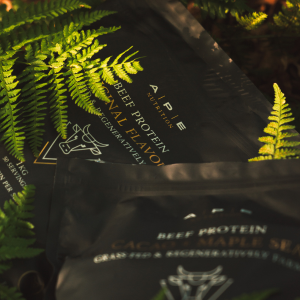In this article I’m going to define what organic food is, explore the benefits, debunk the disinformation and answer the question; is it worth the cost
Introduction
In regard to food or farming methods organic is officially defined as; is produced or involving production without the use of chemical fertilisers, pesticides, or other artificial chemicals.
For the vast majority of human history all food has been organic. However in recent decades this has been flipped on its head. As of 2017, organic only made up 4 percent of total U.S. food sales.*
OK, so we’ve established what organic food is, but what are the benefits?
1. No chemical fertilisers, pesticides, or other artificial chemicals
As the definition states, organic food is produced without any of the above. Originally, these chemicals were introduced to farming practices to aid growth and kill insects that feed on crops with the ultimate goal of increasing yield and profit. Although on the surface, they do carry out this function, when you dig a little deeper, it’s clear that this is a short sighted view point.
The results of numerous studies have demonstrated overwhelming evidence that these chemicals have a negative impact on people, animals and the environment.* We’ll dive in to the impact on animals and the environment in the two sections below. For now, let’s focus on the direct impact on humans.
A number of studies have shown that exposure to these chemicals in high doses, or low doses over a long period can have serious detrimental impacts on human health. Some examples of which are; immune suppression, hormone disruption, diminished intelligence, reproductive abnormalities and cancer.***
The United States Environmental Protection Agency states that food grown using chemical fertilisers and pesticides is safe to eat. This may be true if you’re considering the issue at a surface level. However, on the whole this statement is very misleading. Consuming low levels of these chemicals isn’t likely going to kill you. However, if in higher doses, they’re having major impacts such as the ones outlined above, it is logical to conclude that in lower doses, such as the amounts found is the average non-organically grown foods, they’re definitely not going to be optimal for health and performance.
Another point which often gets overlooked in Western society, is the disproportionate impact these chemicals have on people in developing countries. A huge number of non-organic crops are grown in these countries at huge risk to production workers, sprayers and farm workers. According to the Environews Forum in 1999 the world wide deaths and chronic diseases due to pesticide poisoning alone were around 1 million per year.*
2. Better living conditions for animals
For animal products to be certified organic by the Soil Association they have to meet a number of criteria, including:
-
Must have access to pasture (when weather and ground conditions permit) and are truly free range.
-
Must have plenty of space – which helps to reduce stress and disease.
-
Are fed a diet that is as natural as possible and free from genetically modified organisms (GMOs). Over a million tonnes of GM crops are imported each year to feed the majority of non-organic livestock which produce chicken, eggs, pork, bacon, milk, cheese etc. This practice is banned under organic standards.
-
Graze and forage naturally on organic pasture (grasses and other crops) where only natural fertilisers are used and pesticides are severely restricted.
-
Must not routinely be given antibiotics. Farm animals now account for almost two-thirds of all antibiotics used in the EU. These are passed to us through the food chain.*
It’s clear from the above that organically raised animals will live a happier, healthier life, which in turn increases their nutrient density as we’ll discuss below.
3. Higher micro-nutrient value
This is often a contested point as there are a large number of studies which claim that organic and non-organic food have the same micro-nutrient value. However, the British Soil Association proved this to be wrong when they commissioned a team of independent scientists to analyse 400 published papers comparing food quality between organic and non-organic foods.
The scientists concluded that a huge proportion of the studies were illegitimate based on their study design. Of the legitimate studies, some commonalities were identified, including:
-
Vitamin C and dry matter contents are higher, on average, in organically grown crops.
-
Mineral contents are also higher, on average, in organically grown crops, although the small number and heterogenous nature of the studies included mean that more research is needed to confirm this finding.
-
Research indicates a clear long-term decline in the trace mineral content of fruit and vegetables, and the influence of farming practices requires further investigation.*
This begs the question, why are there so many illegitimate studies out there in relation to the nutrients in organic foods. Work completed by Phil Howard, assistant professor of Community, Agriculture, Recreation and Resource studies at Michigan University demonstrates what I believe to be the answer. Phil identified that 36 of the organic certifications operating in America in 2007 were owned by major food corporations including; Kraft, Mars, Heinz, Coco-Cola, Pepsi, Kellogs and General Mills.* All of which have a vested interested in demonstrating that organic food has the same nutrient value as non-organic food. This is because by continuing to use chemical fertilisers and pesticides they can produce bigger yields and generate more profit.
Summary
I believe there is no question that organic is worth the cost. Buying organic means:
-
Less exposure to harmful chemicals for you and agricultural workers worldwide.
-
Supporting the welfare of animals.
-
Increasing your health and performance through greater intake of beneficial nutrients.
-
Investing in your health as well as the health of the planet.
Lastly, I’d like to point out that gaining organic certification is a costly process. In the UK, organisations that are certified organic by the Soil Association are required to give a percentage of their yearly earning in exchange for holding the certification. Personally I think the Soil Association are a great organisation and paying their fee’s in exchange for their stamp of authenticity is definitely worth it. However, the point I’m trying to make is that because of the associated costs, not all farmers or manufacturers that are producing high quality organic goods have the seal. Therefore, don’t immediately write something off just because it doesn’t have organic on the label. If you can visit your local farmers market, get to know the people you’re buying your food from, it may be that you find individuals producing extremely high quality organic or biodynamic foods just without the label.
We’re extremely proud to state that all our products are certified organic by the Soil Association.






